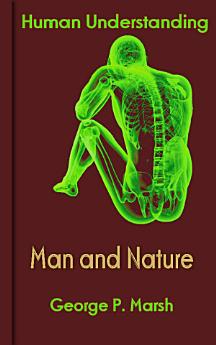Man and Nature: Human Understanding
Giới thiệu về sách điện tử này
The Roman Empire, at the period of its greatest expansion, comprised the regions of the earth most distinguished by a happy combination of physical advantages. The provinces bordering on the principal and the secondary basins of the Mediterranean enjoyed a healthfulness and an equability of climate, a fertility of soil, a variety of vegetable and mineral products, and natural facilities for the transportation and distribution of exchangeable commodities, which have not been possessed in an equal degree by any territory of like extent in the Old World or the New. The abundance of the land and of the waters adequately supplied every material want, ministered liberally to every sensuous enjoyment. Gold and silver, indeed, were not found in the profusion which has proved so baneful to the industry of lands richer in veins of the precious metals; but mines and river beds yielded them in the spare measure most favorable to stability of value in the medium of exchange, and, consequently, to the regularity of commercial transactions. The ornaments of the barbaric pride of the East, the pearl, the ruby, the sapphire, and the diamond—though not unknown to the luxury of a people whose conquests and whose wealth commanded whatever the habitable world could contribute to augment the material splendor of their social life—were scarcely native to the territory of the empire; but the comparative rarity of these gems in Europe, at somewhat earlier periods, was, perhaps, the very circumstance that led the cunning artists of classic antiquity to enrich softer stones with engravings, which invest the common onyx and carnelian with a worth surpassing, in cultivated eyes, the lustre of the most brilliant oriental jewels.
Of these manifold blessings the temperature of the air, the distribution of the rains, the relative disposition of land and water, the plenty of the sea, the composition of the soil, and the raw material of some of the arts, were wholly gratuitous gifts. Yet the spontaneous nature of Europe, of Western Asia, of Libya, neither fed nor clothed the civilized inhabitants of those provinces. Every loaf was eaten in the sweat of the brow. All must be earned by toil. But toil was nowhere else rewarded by so generous wages; for nowhere would a given amount of intelligent labor produce so abundant, and, at the same time, so varied returns of the good things of material existence. The luxuriant harvests of cereals that waved on every field from the shores of the Rhine to the banks of the Nile, the vines that festooned the hillsides of Syria, of Italy, and of Greece, the olives of Spain, the fruits of the gardens of the Hesperides, the domestic quadrupeds and fowls known in ancient rural husbandry—all these were original products of foreign climes, naturalized in new homes, and gradually ennobled by the art of man, while centuries of persevering labor were expelling the wild vegetation, and fitting the earth for the production of more generous growths.
Xếp hạng và đánh giá
Giới thiệu tác giả
George Perkins Marsh (March 15, 1801 – July 23, 1882), an American diplomat and philologist, is considered by some to be America's first environmentalist and the precursor to the sustainability concept, although "conservationist" would be more accurate. The Marsh-Billings-Rockefeller National Historical Park in Vermont takes its name, in part, from Marsh.












